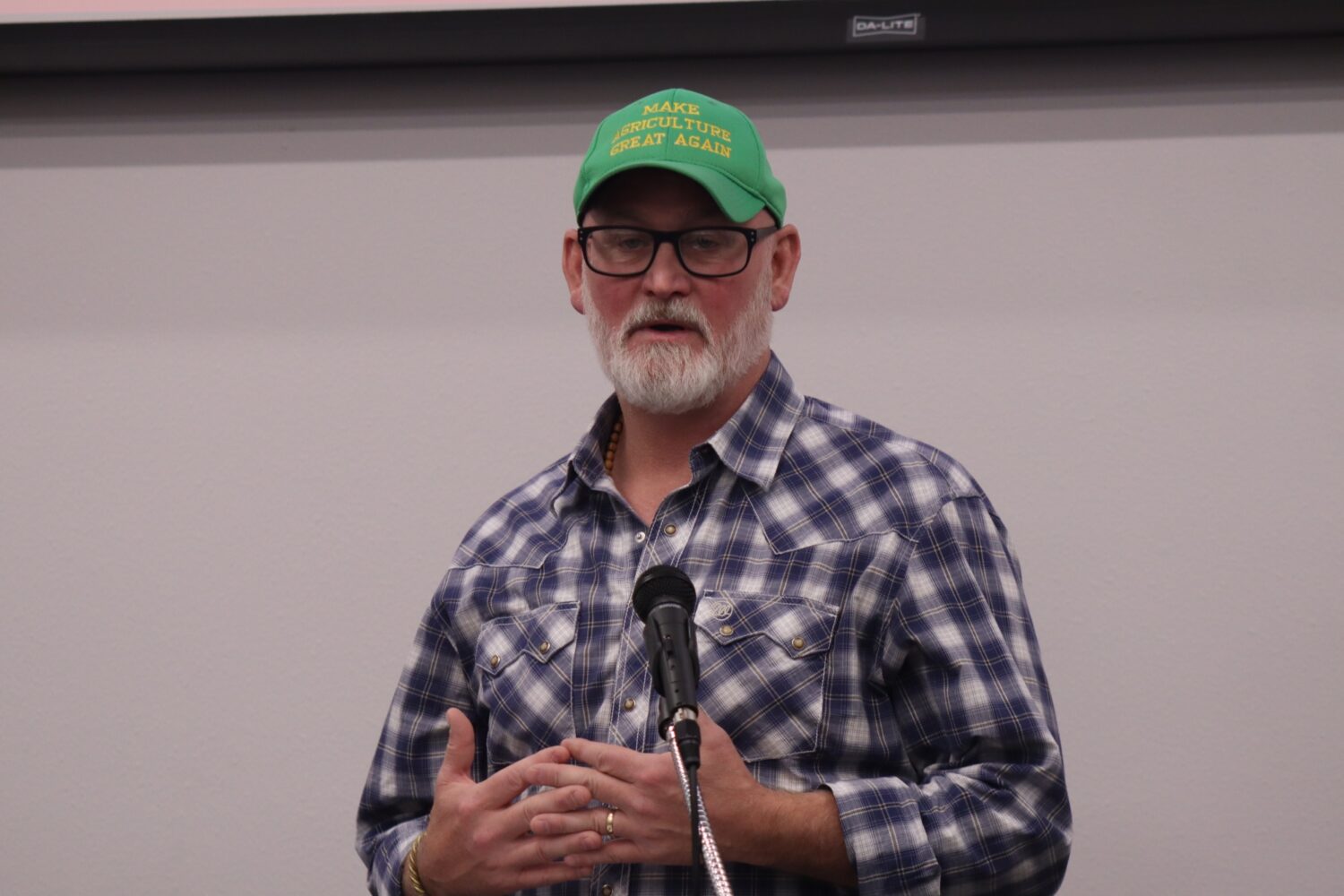
Congressman Derek Van Orden and leaders from across the dairy industry called for reforms to agricultural visa programs during a press conference at the World Dairy Expo on October 2.
For dairy farmers, access to a reliable workforce remains one of the industry’s most pressing challenges. Current H-2A visas allow foreign laborers to work temporarily—typically for about 10 months—but dairy farming is a year-round operation. Farmers say the gap leaves them struggling to maintain consistent production.
Van Orden, who represents western Wisconsin, said the current system is unworkable.
“H-2A programs are broken and it sucks,” Van Orden said. “Last Congress, I was on the Agriculture Labor Working Group, and we went through all these different programs trying to find solutions to fix H-2A, and it’s just broken so I’m ignoring it.”
As an alternative, Van Orden is pushing H.R. 4748, the Agricultural Reform Act of 2025. The bill would create a year-long visa for migrant farmworkers who are not currently in the US. Anyone currently in the US would have to leave and return. The bill would allow agricultural workers to travel freely between the U.S. and their home countries. Applicants would be required to pay a fee of at least $2,500, as determined by the Secretary of Labor.
The proposal includes strict eligibility rules: anyone with a criminal record, or who crossed the border during the Biden Administration, would be barred. Workers whose only offense was entering the country without authorization to work, however, could still qualify.
“When they come back into the country, if they want to become a citizen, they do it just like every other person from around the world that enters the country lawfully,” Van Orden said.
Van Orden also suggested integrating the program into Customs and Border Protection’s mobile app, requiring applicants already in the U.S. to leave the country and re-enter through a legal port of entry.
Farmers, manufacturers voice concerns
Industry leaders joined Van Orden to stress the urgency of reform. Representatives included members of the American Business Immigration Coalition, American Dairy Coalition, Dairy Farmers of America (DFA), American Dairy Association Indiana (ADAI), International Dairy Foods Association (IDFA), and Farm and Eagle.
“If we deport everyone, industries will shutter,” Van Orden warned.
Brian Rexing, a fourth-generation dairy farmer with DFA, said the stakes are high for family farms like his.
“The work that happens on my farm is skilled and difficult that few Americans are willing to do. I need a secure, year-round workforce so I can provide milk and nutritious dairy products to my community and to my world,” Rexing said.
Sam Schwoeppe, a board member with ADAI, called the visa issue a “human rights issue,” noting that many immigrant workers have already demonstrated skill and reliability but remain legally vulnerable.
“It’s critical to provide a legal basis for documentation so that our farm workers can be recognized as part of a safe, stable and secure workforce,” Schwoeppe said.
She compared immigration policy shifts to weather patterns:
“The previous Administration created a flood, and currently we are in a drought. We all know from experience that a balance results in the best crops.”
Visa restrictions affect more than just farms, speakers said. Donald Grady, senior director of legislative affairs with IDFA, noted that dairy processing facilities face similar labor shortages under the H-2B visa program, which has annual caps.
“As the Congressman said, we are farm-adjacent,” Grady said. “If you don’t have full labor on either side, you’re not going to be able to process the product.”
The Agricultural Reform Act was introduced in the House on July 23 and referred to the Judiciary Committee, but no further action has been taken. With Congress facing a potential government shutdown, the bill’s future remains uncertain.



